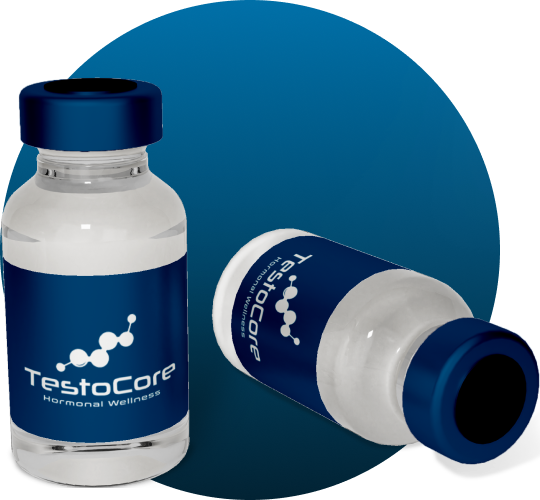For many years Testosterone was associated with huge muscle dudes killing it in the gym. But in recent years we understood that it’s power goes beyond looking good. It's about feeling good, being able to do things that seem difficult and sometimes impossible. It’s about turning that light switch back on and enjoying sex like when you were in your 30s. One of the greatest rewards that we receive here at TestoCore is seeing guys transform their lives and becoming a better version of themselves. We understand that it takes courage to make that first call and admit to yourself that you need help. We are here to listen and help. Our team is ready to guide and support you on your journey to a happier, healthier you.

TESTOSTERONE REPLACEMENT THERAPY (TRT)
A Comprehensive Overview of Testosterone Replacement Therapy (TRT)
In the landscape of male health, testosterone is often heralded as a keystone hormone, epitomizing strength, vitality, and masculinity. Its significance transcends the realm of sexual functionality, stretching into broader health territories including mental sharpness and physical stamina. With the natural ebb of testosterone levels as men age, a suite of undesirable symptoms often emerge, impairing life's overall quality. Testosterone Replacement Therapy (TRT) represents a beacon of hope for many, promising to restore the dynamism associated with youth. This guide intricately unpacks TRT, scrutinizing its procedural dynamics, benefits, and the inherent risks.
Decoding Testosterone:
The Precursor to TRT. A robust understanding of TRT necessitates a foundational knowledge of testosterone and its systemic roles. As the foremost male sex hormone, testosterone orchestrates the development of male reproductive tissues and fosters secondary sexual characteristics such as F fat distribution, and bone integrity. The decline in testosterone, often referred to as andropause, typically commences around the age of 30 and extends indefinitely. This decline manifests in various symptoms including diminished sexual desire, erectile difficulties, pervasive fatigue, muscle atrophy, and emotional fluctuations. TRT seeks to realign these dwindling hormone levels to their natural standards, thereby mitigating the associated symptoms.
Embarking on the TRT Journey
The path to TRT begins with a detailed consultation with a specialist in men's health, potentially an endocrinologist or a urologist. This initial step encompasses a detailed physical assessment, a comprehensive review of medical and symptomatic histories, and usually, diagnostic blood tests to evaluate testosterone levels. If results reveal a deficit and symptoms corroborate, TRT might be deemed appropriate. The administration of TRT can be customized through various modalities such as injections, patches, gels, creams, or pellets, depending on individual needs and preferences.
TRT Benefits Unveiled
TRT can usher in a plethora of improvements for individuals grappling with low testosterone:
Personalizing the TRT Protocol
Opting for TRT involves a thoughtful decision-making process and should be highly personalized. Engaging in comprehensive discussions with your healthcare provider is critical to understand the therapy thoroughly and make informed decisions tailored to your specific circumstances.
Conclusion
TRT offers a substantial potential to enhance the quality of life for men with low testosterone levels. Through a careful evaluation of benefits against risks and a commitment to a personalized, meticulously monitored treatment plan, many individuals experience significant relief from symptoms. Nonetheless, TRT is not universally suitable and demands a cautious, informed approach in collaboration with a healthcare professional to navigate its complexities safely and effectively.
